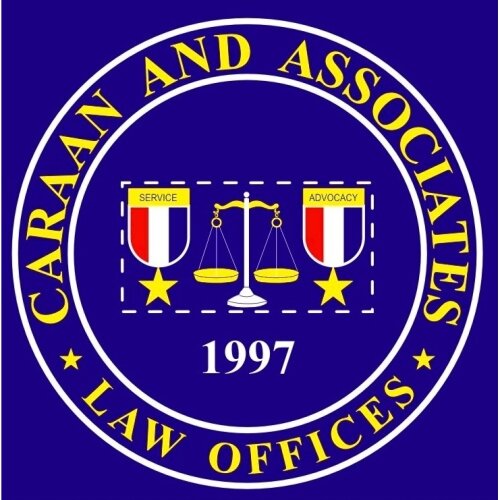Best Renewable & Alternative Energy Lawyers in Manila
Share your needs with us, get contacted by law firms.
Free. Takes 2 min.
List of the best lawyers in Manila, Philippines
About Renewable & Alternative Energy Law in Manila, Philippines
Renewable and alternative energy law in Manila, Philippines, covers the rules and regulations that govern the production, distribution, and use of energy from sources other than fossil fuels. This includes energy generated from solar, wind, hydro, geothermal, and biomass. Manila, being the capital city, is at the forefront of the Philippines’ ongoing transition to more sustainable energy solutions. This area of law aims to encourage investment, promote sustainable growth, and ensure adherence to national and local environmental standards.
Why You May Need a Lawyer
Several situations may require legal help when dealing with renewable and alternative energy in Manila:
- Setting up a solar, wind, or other renewable energy project, whether for residential, commercial, or industrial purposes
- Navigating permitting and licensing procedures for energy facilities
- Negotiating power purchase agreements and energy supply contracts
- Ensuring compliance with government incentives, subsidies, and regulations
- Addressing disputes with neighbors, contractors, suppliers, or government bodies
- Dealing with environmental impact assessments and local government requirements
- Protecting intellectual property related to renewable energy technology
Local Laws Overview
The legal framework for renewable and alternative energy in Manila stems from both national and local laws. Some important aspects include:
- Republic Act No. 9513 (Renewable Energy Act of 2008) - This law is the backbone of renewable energy policy in the Philippines. It promotes the development, utilization, and commercialization of renewable energy through incentives like income tax holidays, duty-free importation of equipment, and feed-in tariffs.
- Local Government Unit (LGU) Regulations - Most renewable energy projects in Manila require permits and clearances from city or barangay offices. These include environmental compliance certificates and construction permits.
- Department of Energy (DOE) Guidelines - The DOE issues regulations on accreditation, grid connection, and technical standards for renewable energy projects.
- Environmental Compliance - Projects must comply with the Philippine Environmental Impact Statement System and obtain environmental compliance certificates (ECC) from the Department of Environment and Natural Resources (DENR).
- Building Codes and Zoning - The Manila City government enforces rules regarding the location, safety, and integration of renewable energy systems.
Frequently Asked Questions
What types of renewable energy are commonly used in Manila?
Solar energy is most common for homes and businesses, while some institutions also use wind, biomass, and geothermal energy systems.
Do I need permits to install solar panels in Manila?
Yes, you usually need building permits, barangay clearance, and sometimes an environmental compliance certificate, depending on the size and scope of your project.
Are there government incentives for using renewable energy in Manila?
Yes, the Renewable Energy Act offers incentives like tax holidays, duty-free importation of equipment, and feed-in tariffs. Local incentives may also apply.
Can homeowners sell excess power back to the grid?
Yes, under the net metering program of the Renewable Energy Act, qualified customers can sell surplus electricity to the grid, subject to guidelines set by the utility company and the Energy Regulatory Commission.
What are the environmental requirements for renewable energy projects?
Projects may need to undergo an environmental impact assessment and secure an environmental compliance certificate from the DENR, especially if large-scale.
How do I get approval from the Department of Energy for a renewable energy project?
You must submit an application, comply with technical and documentary requirements, and pass the DOE’s evaluation for accreditation.
Are there limits on the size or capacity of renewable installations in the city?
Yes, local zoning ordinances and grid capacity considerations may limit the size and location of installations. Always check with local authorities before starting your project.
Who is responsible if my renewable energy system causes damage or injury?
Owners or operators are generally responsible for ensuring safety. Liability may arise in cases of negligence, so proper installation and maintenance are essential.
Can businesses get special financing or loans for renewable energy projects?
Yes, some banks, government agencies, and international organizations offer financing options specifically for renewable energy initiatives.
What happens if I do not comply with renewable energy regulations in Manila?
Non-compliance can lead to fines, project delays, denial of permits, or closure of your energy facility. Legal action may also be taken by regulatory agencies or affected parties.
Additional Resources
Several organizations can help you understand or address legal concerns related to renewable energy in Manila:
- Department of Energy (DOE) - The main government agency overseeing energy policies and permits
- Department of Environment and Natural Resources (DENR) - Handles environmental compliance and certification
- Energy Regulatory Commission (ERC) - Regulates net metering and grid connection
- Manila City Hall - Issues local permits and implements city ordinances
- Philippine Green Building Council - Offers support on sustainable construction practices
- Renewable Energy Association of the Philippines (REAP) - Provides advocacy and industry guidance
Next Steps
If you need legal assistance for your renewable or alternative energy project in Manila, follow these steps:
- Determine the scope and type of help you need, such as permits, contracts, or dispute resolution.
- Contact a lawyer or law firm with expertise in renewable and alternative energy law in the Philippines.
- Prepare relevant documents, like project proposals, existing permits, contracts, and technical plans, for your consultation.
- Consult local authorities or relevant agencies to confirm specific requirements for your project.
- Stay updated on changes in laws and regulations that may affect your project or operation.
Lawzana helps you find the best lawyers and law firms in Manila through a curated and pre-screened list of qualified legal professionals. Our platform offers rankings and detailed profiles of attorneys and law firms, allowing you to compare based on practice areas, including Renewable & Alternative Energy, experience, and client feedback.
Each profile includes a description of the firm's areas of practice, client reviews, team members and partners, year of establishment, spoken languages, office locations, contact information, social media presence, and any published articles or resources. Most firms on our platform speak English and are experienced in both local and international legal matters.
Get a quote from top-rated law firms in Manila, Philippines — quickly, securely, and without unnecessary hassle.
Disclaimer:
The information provided on this page is for general informational purposes only and does not constitute legal advice. While we strive to ensure the accuracy and relevance of the content, legal information may change over time, and interpretations of the law can vary. You should always consult with a qualified legal professional for advice specific to your situation.
We disclaim all liability for actions taken or not taken based on the content of this page. If you believe any information is incorrect or outdated, please contact us, and we will review and update it where appropriate.















